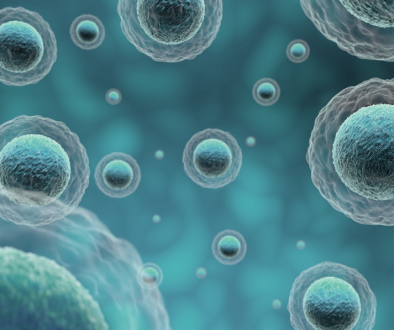Nutrition plays a vital role in supporting men with prostate cancer. Emerging evidence shows that dietary strategies can influence cancer metabolism, inflammation, and overall treatment outcomes. One approach gaining interest is the Mediterranean Ketogenic Diet (Med-Keto),a therapeutic blend of two powerful dietary patterns: the cancer-targeting effects of ketosis with the anti-inflammatory and heart-protective benefits of the Mediterranean diet.
Why Consider Ketogenic Nutrition in Prostate Cancer?
Cancer cells often rely heavily on glucose (sugar) for energy. A ketogenic diet, which restricts carbohydrates and emphasizes fat as the primary fuel source, lowers circulating glucose and insulin levels while increasing ketones, an alternative fuel that healthy cells can use efficiently but cancer cells cannot. Being in Nutritional Ketosis refers to a blood level over 0.5 mmol/L BHB. Therapeutic ketosis is 3-7 mmol/L BHB. On-going daily goal is an average blood glucose level under 85mg/dl and a blood ketone level over a 0.5 mmol/L BHB.
For prostate cancer specifically, research suggests:
- Lower insulin and IGF-1 signaling may reduce tumor growth drivers.
- Promotes Autophagy, which Reduces inflammation and helps modulate the tumor microenvironment.
- Inhibits Histone Deacetylase (HDAC)
- Destablizes tumor tissue DNA
- Promotes Immune regulation
- Promotes mitochondrial biogenesis
Why Add a Mediterranean Foundation?
The Mediterranean diet has long been associated with reduced risk of cardiovascular disease, better longevity, and anti-inflammatory effects—all critical for men undergoing prostate cancer treatment. By combining it with ketogenic principles, the diet remains therapeutic yet heart-healthy.
Key Mediterranean elements include:
- Olive oil and avocado oil as primary fats.
- Low-mercury fish (sardines, salmon, mackerel) for omega-3s.
- Nuts and seeds (walnuts, chia, flax, pumpkin).
- Herbs, spices, and aromatics (garlic, rosemary, turmeric) with anti-cancer compounds.
- Leafy greens and cruciferous vegetables (spinach, kale, arugula, broccoli, cauliflower) that support detoxification and hormone metabolism.
Core Principles of a Mediterranean Keto Diet for Prostate Cancer
Low-Carb, High-Fat Balance
- Keep daily net carbs between 20–35g to sustain ketosis.(check blood sugar and ketones twice daily to determine your ideal carb level).
- Prioritize monounsaturated and polyunsaturated fats over saturated fats.
Moderate Protein from Lean Sources
- Choose fish, pasture-raised poultry, and plant-based proteins.
- Limit red and processed meats, which are linked to higher prostate cancer risk.
Nutrient-Dense Vegetables
- Aim for 2+ servings of cruciferous and 2+ servings of leafy greens daily.
- Include mushrooms, onions, and broccoli sprouts for added cancer-protective compounds.
Phytonutrient-Rich Extras
- Small amounts of tomatoes (lycopene) and dark berries (anthocyanins) add targeted antioxidants.
Avoid Cow’s Dairy
- Dairy (especially from cows) may promote insulin and IGF-1 signaling. Swap for nut-based alternatives or sheep/goat dairy in small amounts if tolerated.
Benefits for Prostate Cancer Patients
- Metabolic health: Stabilizes blood sugar and insulin, which may reduce tumor-promoting pathways.
- Hormone balance: Cruciferous vegetables provide sulforaphane and DIM, supporting estrogen metabolism and androgen signaling.
- Mitochondrial function: Ketones enhance energy production in healthy cells.
- Reduced inflammation: Omega-3s, olive oil, and polyphenols calm inflammatory cascades.
- Cardiovascular protection: Essential since prostate cancer treatments can increase heart risks.
Practical Tips for Getting Started
Meal Framework:
- Breakfast: Spinach and arugula salad with smoked salmon, olive oil, and avocado.
- Lunch: Cauliflower “tabbouleh” with grilled chicken and tahini dressing.
- Dinner: Baked wild salmon with broccoli, mushrooms, and a lemon-olive oil sauce.
- Cooking Oils: Use olive oil for salads and low-heat, avocado oil for higher-heat cooking.
- Snacks (if needed): Walnuts, macadamias, or cucumber slices with wild smoked salmon.
- Seasoning: Use herbs liberally—rosemary, oregano, turmeric, and garlic are anti-inflammatory allies.
Conclusion
The Mediterranean Ketogenic Diet provides a powerful, evidence-informed nutritional strategy for men with prostate cancer. By blending the cancer-metabolism benefits of ketosis with the anti-inflammatory, heart-protective strengths of the Mediterranean diet, this approach offers a sustainable path that nourishes the body, supports treatment, and promotes long-term health.
As always, dietary changes should be personalized and guided by a qualified practitioner—especially when combined with cancer therapies.



